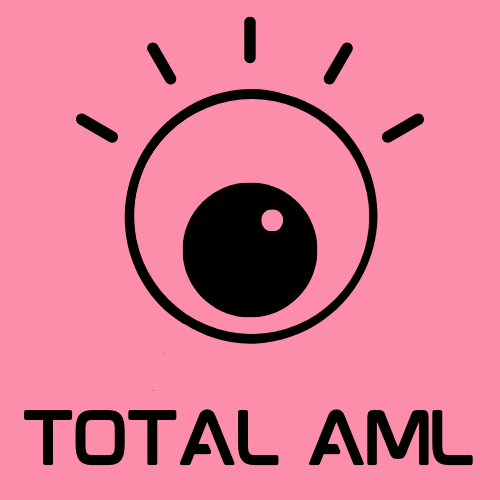Proliferation Financing
Proliferation financing is when a person makes available an asset, provides a financial service or conducts a financial transaction; and the person knows that, or is reckless as to whether, the asset, financial service or financial transaction is intended to facilitate the proliferation of weapons of mass destruction (WMD). Proliferation financing is a standalone offence. The proliferation of WMD does not need to occur or be attempted. WMD are nuclear weapons, chemical weapons, biological weapons, and materials related to nuclear weapons. WMD proliferation includes the manufacture, production, possession, acquisition, stockpiling, storage, development, transportation, sale, supply, transfer, export, transhipment or use of WMD and the provision of technical training, advice, service, brokering or assistance related to any of these activities.
The Democratic People’s Republic of Korea (also known as North Korea) and Iran are countries at high risk for WMD proliferation. In addition, individuals and legal entities are subject to international sanctions from the United Nations and autonomous Australian sanctions for proliferation activities.
Procurement networks operate on behalf of North Korea and Iran, as well as other countries of proliferation concern, and non-state actors. Procurement networks use a range of methods to help obscure their illicit activities and evade sanctions. For example, using front or shell companies, mislabelling goods, sourcing either components or sub-components from a variety of suppliers, using third-country transhipment locations to hide the ultimate destination, and exporting goods just under control or reporting thresholds.
Threats
The National Risk Assessment on Proliferation Financing in Australia issued in 2022 (NRAPF) noted the following threats:
Use of Australian financial services and infrastructure – Proliferation actors use Australian financial services and infrastructure to secure trade financing and remit payments associated with trade activity related to proliferation financing or activities that breach proliferation-related sanctions. To do so, they mostly use major domestic and foreign banks, and to a lesser extent remittance, foreign exchange and virtual asset providers. In these cases, Australia-based customers maintain close personal and business relationships with individuals in countries of proliferation concern. This can help obscure the illicit purpose of the transfer.
Use of Australia-based corporate structures – Corporate entities and complex networks are used to directly and indirectly facilitate proliferation financing activity, along with other legitimate uses. They are often subsidiaries or otherwise affiliated with one of several larger corporations in countries of proliferation concern.
Use Of Third-Country Nationals – Proliferation actors often rely on nationals of third countries to obfuscate the connection between designated individuals or entities and sanctioned activities. North Korea is known to use nationals of other Asian countries, especially China.
Targeting Australian citizens to source and export sensitive technologies – Professionals working in dual-use goods sectors, Australia’s import-export sector, and individuals working in higher education and research have been used – both wittingly and unwittingly – to source and export critical and sensitive technologies to actors of proliferation concern.
Use of designated non-financial businesses and professions (DNFBP) – Proliferation actors exploit DNFBPs in much the same way as money launderers. Particularly, to establish complex corporate structures - including shell and front companies - and related banking arrangements to evade sanctions and generate revenue for proliferation activities.
Vulnerabilities
The NRAPF highlights some key vulnerabilities in the Australian economic and financial system in relation to proliferation financing:
The prevalence of Asian countries among Australia’s key export destinations creates an inherent proliferation financing vulnerability, with Asia being historically a popular destination for sanctioned trade with North Korea.
The diversion of dual-use and proliferation-sensitive goods and expertise to countries of proliferation concern or entities sanctioned in relation to proliferation activity.
Australia’s globally significant mining and petroleum industry.
Many of DNFBP’s activities are not currently covered under the AML/CTF Act.
The poor transparency of legal persons and legal arrangements where proliferation actors have the opportunity to create opaque business structures in Australia to help conceal their illicit activity.
Limited awareness of broader proliferation financing risk exposure, primarily among some small to medium-sized businesses.
The presence of numerous virtual asset service providers not registered with AUSTRAC. Currently, only digital currency exchangers need to register with AUSTRAC, and this means that other services (e.g., virtual currency to virtual currency exchange) are not covered under the AML/CTF Act.
Conclusions
The anti-proliferation regime relies on compliance with the sanction and on the AML/CTF regimes to keep the financing of the proliferation of WMD at bay. The AML/CTF Amendment Bill proposes to include proliferation financing risk assessment as a requirement for reporting entities. Moreover, it also proposes to bring DNFBP (called in the Bill ‘professional services’) and more virtual asset service providers (beyond the digital to fiat currency exchangers) under the AML/CTF regime. These proposed amendments have the potential to decrease Australian vulnerabilities in terms of proliferation financing.
What's next
Get in touch if you have any questions on your money laundering, terrorism financing and proliferation financing risks.
